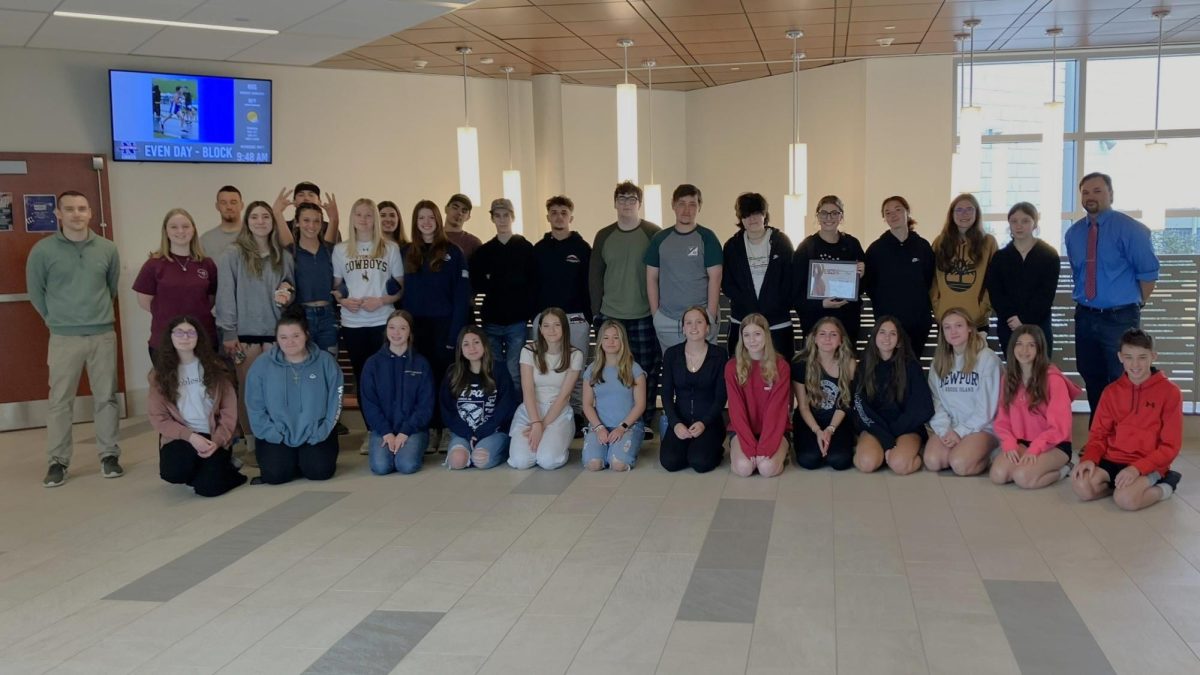FFA Freshmen Blend Passion with Education in Engaging Curriculum
Freshmen in Golembeski’s class take part in FFA projects to learn about the timelines and facts of the FFA.
October 28, 2022
WOODBURY –– Known for its outstanding agricultural program, the Woodbury FFA gives students every opportunity to pursue their agricultural interests through the many courses available.
Preparing students for the agricultural field, freshmen are exposed to the basics of every course, allowing them to further their perspective on agricultural education.
This is recognized in the program as exploratory, in which freshmen students have to take Animal Science, Plant Science, Tractor Driving, and Mechanics as prerequisites.
“The most rigorous year was freshman year,” said Mason Pieger, a junior from Watertown. “I had to take ag classes even though they were out of my interests.”
The sentiment among most agriscience students is that this exposure is beneficial to understanding agriculture as a whole.

“We feel it is best to give our students a wide introduction to the many topics that students can study in our program, so they can develop interest in areas that they may not have thought of before,” said Ed Belinsky, Woodbury FFA agricultural director and vet science instructor.
“For example, most of our incoming freshmen come to Nonnewaug because of their interest in veterinary science,” Belinsky said. “But after freshman year many develop passions for mechanics, aquaculture and plant science after the introductory year.”
This exploratory program guides the current freshmen to create their own path through agriculture by providing the standard classes and contributing to growing parts of the industry.
“We are constantly adjusting our curriculum to fit the needs of the industry and careers students can pursue after high school,” said Belinsky. “We have tried to incorporate elements of new courses to our freshman classes such as Farm to Table, Aquaculture, Animal Therapy and Local Foods. The problem has always been time and classes are so full that whenever we add something to the curriculum, something needs to be taken out.”
While freshmen are exposed to a wide range of curricula in the exploratory program, students entering their sophomore year begin to narrow their course selections that fit students’ interests. Freshmen, however, need to have a range of experiences prior to focusing on a particular content area.
“The freshman curriculum has consisted of FFA/Tractor and Equipment Operation, Mechanics, Plant Science, and Animal Science for decades,” said Belinsky. “Although the topics have remained constant, the individual classes are constantly being updated to provide students with more opportunities and experiences as well as being adjusted to fit the changing industry.”



















